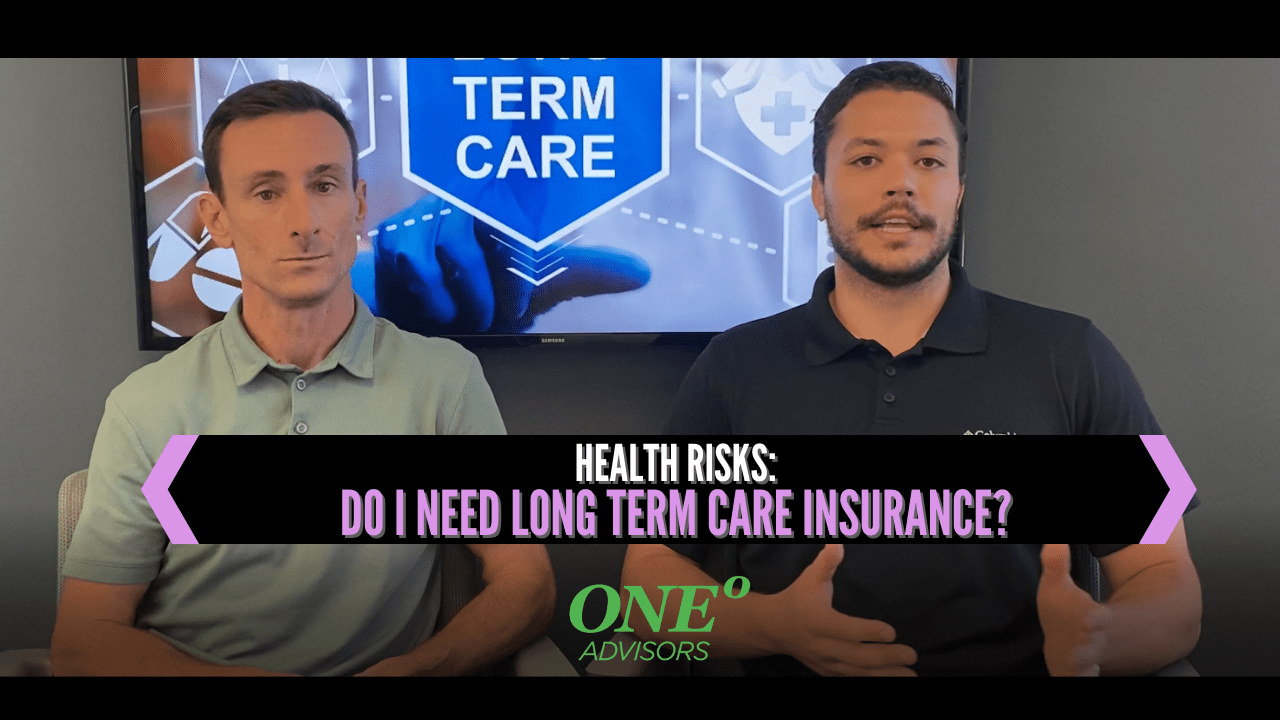Do I Need Long-term Care Insurance?
It’s Important to remember Medicare does not cover long-term care
52%: Is the percentage of people turning age 65 who will need some type of long-term care services in their lifetimes. What are my options?
Show Notes:
Full Transcript:
Do I Need Long Term Care Insurance:?
Anthony: So Alex, it’s important to remember that Medicare does not cover long-term care. And so this becomes an important decision for people should they buy insurance 52 percent of people who turn age 65 need some sort of long-term care and have that expense.
So there are really three options number one is as people can buy insurance talk about the pros and cons.
Option #1: Buy Long Term Care Insurance [00:22-01:19]
Alex: So buying insurance, right the pro of that is that it’s less risky, when you buy insurance you’re transferring that. Risk to the insurance company. So that’s one of the major benefits of it.
The drawback of buying long-term care insurance is that it can be costly and those costs have actually been going up definitely in recent years. A lot of these insurance carriers when they initially wrote the policies underestimated how much benefit they’d be having to pay out. And so, you know, unless you paid up your policy right away and you still pay nowadays. You might be seeing premiums increase. So that’s one of the drawbacks is that it can be expensive and you know, especially if you’re paying on a monthly basis or even an annual basis, you might see your policy premiums continue to increase in the future.
Anthony: Yeah. I was actually talking with some clients yesterday and they had bought their long-term care policies 10 years ago great benefits for a fairly low cost. And so the cost now is more increased. It makes it a tougher decision
Option #2: Self-insure [01:22-02:03]
Anthony: So that leads us into option number two, which is to essentially self-insure pay for the cost yourself.
Alex: Yeah. So self-insuring, let’s go through those pros and cons, right? What’s the pro? You don’t have to buy expensive Insurance the con. Is that okay? Now the liability is on you, now the pressure is on you to save enough not only for retirement, not only for all your goals, but also for what could be a very expensive Health event in the future. We don’t know exactly if it’s going to happen.
That’s part of the future, right? That’s why we buy insurance is to protect against the future. So if you’re not going to buy insurance, you need to be making sure that you have enough set aside to self-insure and protect yourself.
Option #3: A Hybrid Between the Two [02:08-02:45]
Anthony: So then option number three is really a hybrid of doing both of those things.
Alex: I like this option a lot. Some people like it as well because you’re not necessarily putting all your eggs in one basket. You’re not, you know buying a huge really expensive policy that you might not need, but you’re also not putting all of the pressure on yourself to fully self-insure should something God forbid happen to you. Buying a little bit of long term care insurance just to cover some of the future expected cost can help manage that risk help mitigate it a little bit.
So, you know, you’re not left wide open to a potentially catastrophic expensive Health event.
Anthony: Yeah, exactly.
How Can A Financial Plan Help To Make These Decisions? [02:46-04:07]
Anthony: So talk about how a financial plan can help to make these decisions because these are big expenses and it’s difficult. So, how can a financial plan help? Yeah, it’s hard. So the first thing like you said is getting that financial plan complete you want to make sure. Answer that question
Am I going to be “running out of money” And then from there you can begin to assess and stress test your plan. Okay what happens if I have a long-term event.
Now a lot of people wonder I don’t even know what a long-term care event could cost. You know, is it $20,000? Is it $80,000? Genworth actually has a really nice tool online. I think it’s called the Genworth Cost of Care Tool we’ll link to that in our post and that’s a really nice tool to be able to type in your zip code and it will show you. Here’s an estimated range of cost that you could have depending upon your level of care needed in your specific area and equipped with that knowledge. You can then kind of illustrate what happens if I go into a home, let’s say for three years. How does that look does it stress my plan? And are we on track even with bumps in the road?
Anthony: Right and those expenses they are pretty high. They tend to shock people.
Alex: They tend to outpace inflation too. That’s the other thing is that we’re tending to see these health insurance costs or these Health expenses outpacing inflation and so you also want to account for that too those expenses could go up much much higher in the future.
Anthony: Yeah, it’s important stuff. So if you don’t have your own financial plan that’s tied towards a successful retirement and integrating your health care decisions. We can help with that.
Go to our website onedegreeadvisors.com you can schedule a quick call with us to see if we might be able to steer you in the right direction. We’d love to talk with you.
Let’s get to know you better. Schedule a complimentary call with an advisor here
More Reading: How Should I Prepare My Portfolio for What’s Next?
